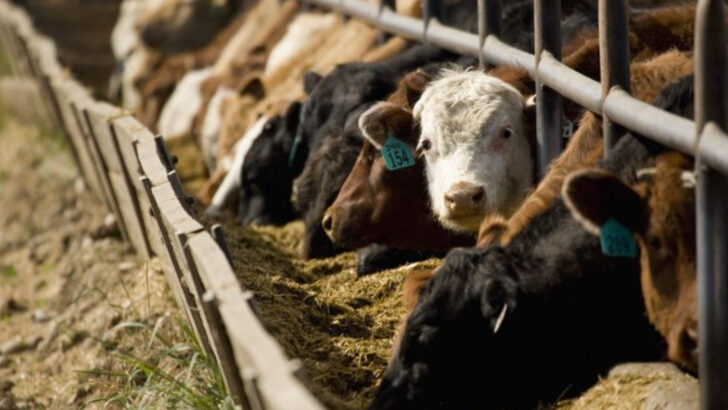Raising farm animals might seem like a peaceful, back-to-nature dream—until reality kicks in. Some of these creatures demand more time, effort, and patience than you’d ever expect. Sure, they might look adorable grazing in a field, but behind the scenes, they can be absolute divas.
Goats? Escape artists with a talent for mischief. Pigs? Smarter than your dog and twice as stubborn. And don’t even get started on the high-maintenance demands of certain poultry breeds. If you think farm life is all sunshine and fresh eggs, you might be in for a wild ride.
Whether you’re a seasoned farmer or just dreaming of your future homestead, knowing which animals require extra work is crucial. Some of these critters will test your limits, drain your wallet, and turn your morning chores into a full-time job.
Let’s dive into 24 farm animals that are anything but easy to care for!
Goats
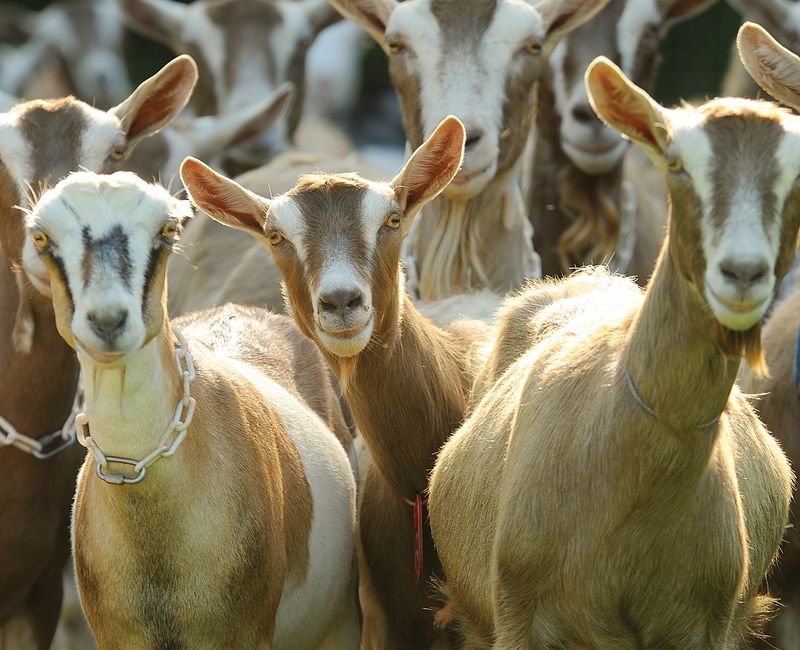
Goats are often seen as low-maintenance farm animals, but they can be quite demanding. They are curious creatures that love to explore and can escape from almost any enclosure. Providing a secure and enriched environment is essential to keep them safe and satisfied. Moreover, goats have specific dietary needs that go beyond just grazing. They require a balanced diet with minerals and vitamins, which means additional supplements could be needed. Goat health care is another consideration, as they are susceptible to a variety of illnesses. Regular veterinary checks are crucial to prevent diseases.
Chickens
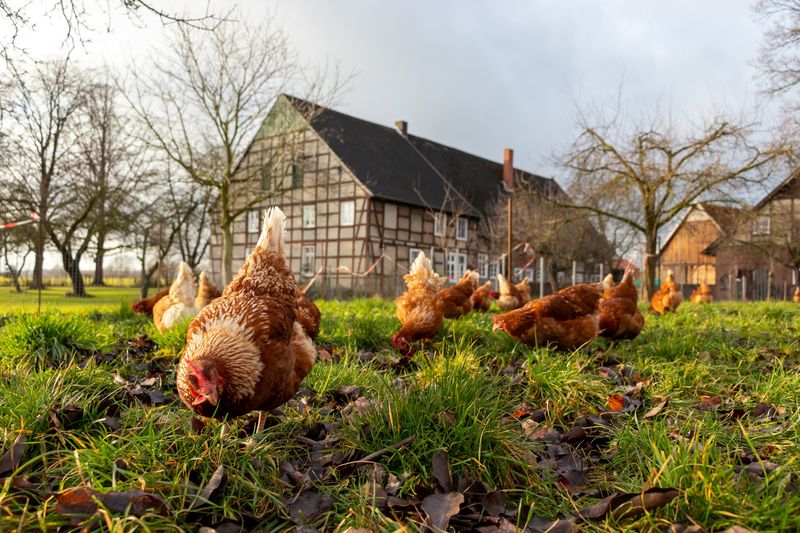
Chickens might appear easy to manage, but they require significant care. They need a clean and secure coop to protect them from predators and weather extremes. Daily fresh water and quality feed are imperative for their health. Chickens also need regular cleaning and maintenance to prevent diseases such as mites and lice. Additionally, their social behavior means they need space to roam and interact. When raising chickens, be prepared for regular egg collection and monitoring for any signs of distress or illness. Their pecking and scratching behavior can also damage gardens and landscapes.
Sheep
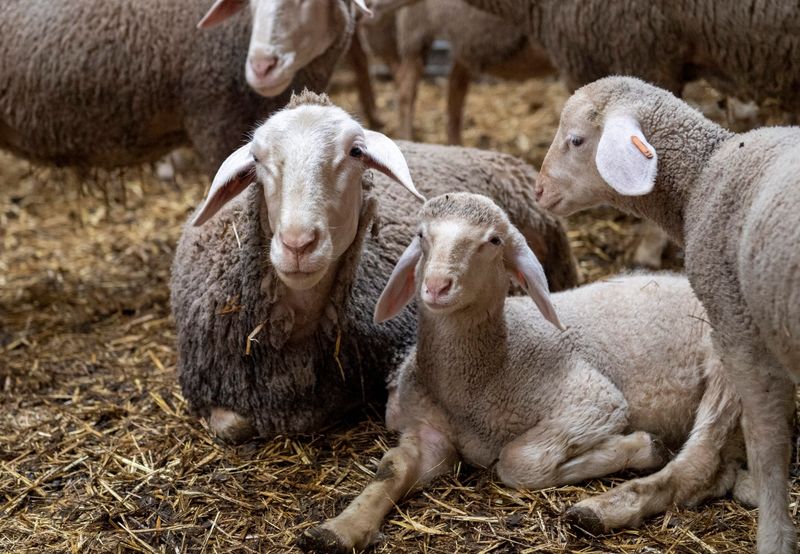
Sheep are often underestimated in terms of maintenance. They require regular shearing to prevent overheating and parasites infestations. Their wool can become a hassle if not properly cared for. Sheep also demand proper fencing, as they are known to wander off. Their diet needs careful monitoring to avoid conditions like bloat. They are prone to foot rot, requiring regular hoof trimming and inspections. Sheep often need assistance during lambing, making it necessary to be attentive during birthing seasons. Despite their calm demeanor, sheep can be quite vocal and require social interaction.
Pigs
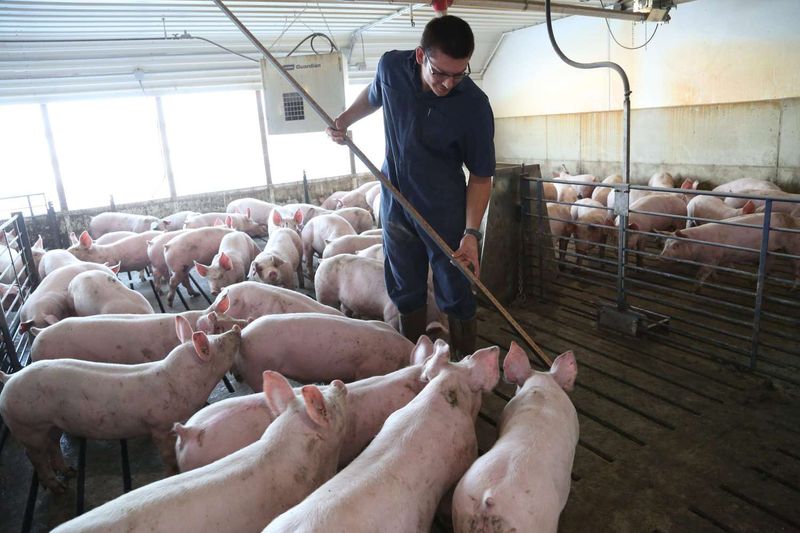
Pigs are intelligent and social animals, requiring more than just a muddy pen. They need space to roam and root, which helps them stay active and healthy. Without proper space and stimulation, pigs can become destructive and stressed. Their diet is another area of concern, as it needs to be balanced with proteins and fibers. Pigs are also prone to obesity, so portion control is crucial. They need regular health checks for diseases and parasites. Additionally, pigs require clean living conditions to prevent infections and illnesses. Their strong personality demands patient handling.
Cows
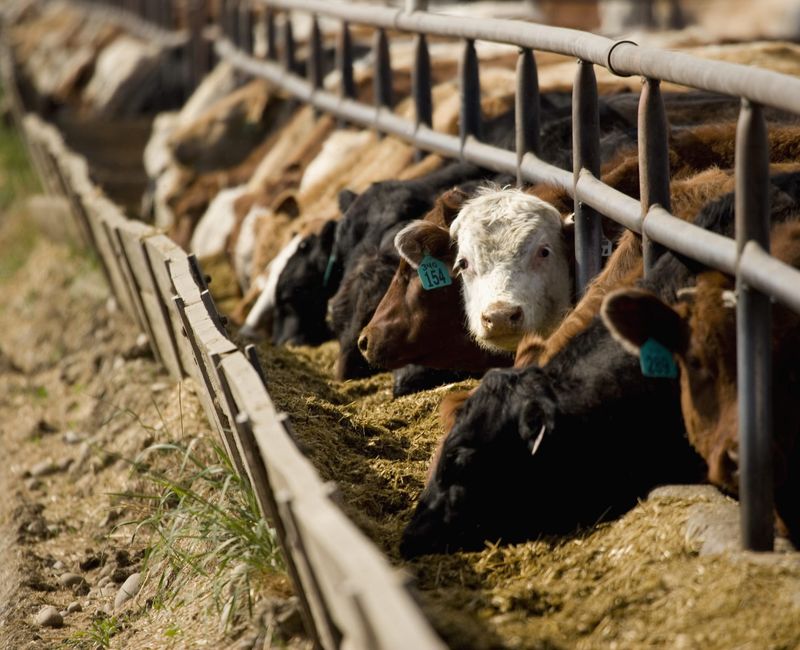
Cows demand substantial resources in terms of space and feed. They require large pastures to graze, which need constant upkeep to ensure they have fresh, high-quality grass. Their diet must be supplemented with minerals and monitored to prevent digestive issues. Cows also need significant amounts of water daily. Regular veterinary care is essential to monitor for diseases like mastitis, especially in dairy cows. Cows are social animals, needing companionship to thrive. They require proper shelter to protect them from harsh weather conditions. Milking cows adds the responsibility of regular milking schedules.
Horses
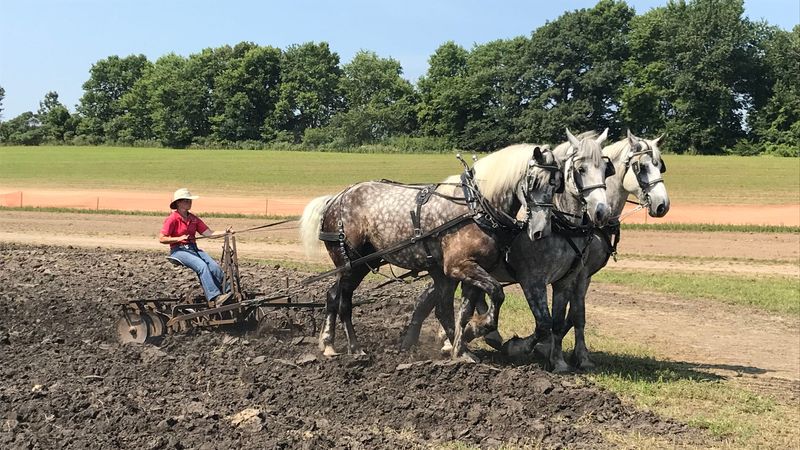
Horses are majestic yet high-maintenance animals requiring daily attention. They need spacious stables and extensive pastures for exercise. Proper grooming, including regular hoof care and dental check-ups, is vital to prevent health issues. Their diet must be meticulously balanced with high-quality hay and grains. Horses are highly social, requiring interaction with humans or other horses to prevent loneliness. Training and riding require time and skill, demanding dedication from their handlers. Veterinary care is crucial to monitor for conditions like colic or lameness. Proper equipment for riding and safety is another consideration.
Ducks
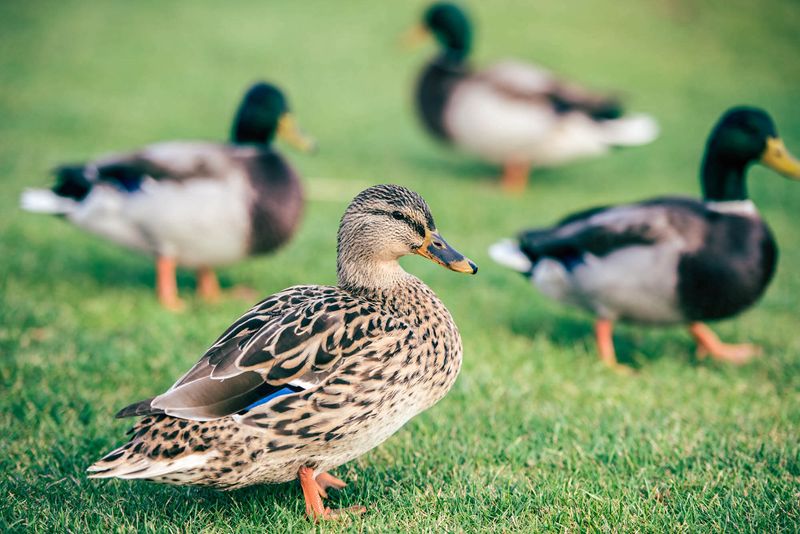
Ducks are admired for their charming presence on a farm, but they come with specific needs. They require access to water not just for drinking but for swimming and bathing, which is essential for their health. Duck ponds need regular cleaning to prevent waterborne diseases. Their diet should be rich in protein, especially during the breeding season. Ducks need secure housing at night to protect them from predators. Additionally, they can be quite noisy, which may be bothersome. They are social birds, needing company to thrive. Managing their health requires regular checks for parasites.
Turkeys
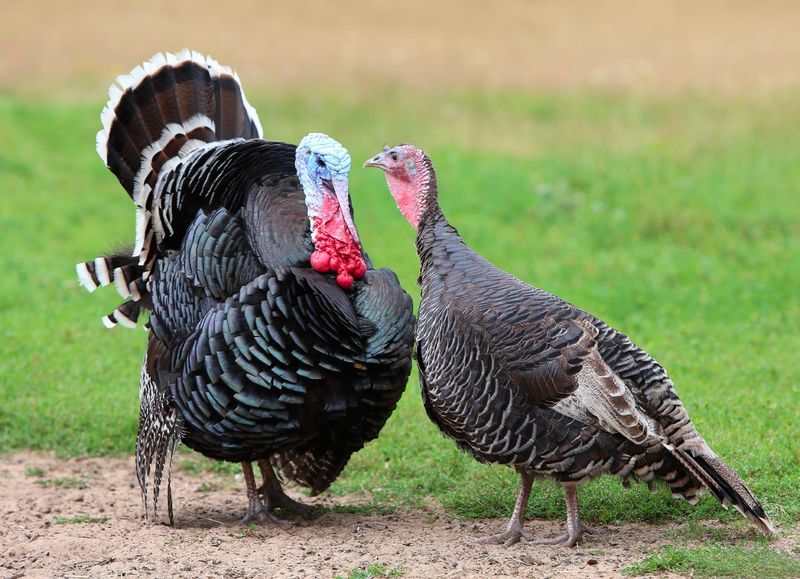
Turkeys might seem like oversized chickens, but they have unique requirements. They need a spacious and secure environment to roam. Turkeys are susceptible to diseases like blackhead, requiring preventative measures and regular health checks. They need a diet rich in protein and energy, especially during growth periods. Turkeys can also be aggressive, requiring careful handling and management. Housing must be clean, dry, and predator-proof, with enough space to prevent overcrowding. Despite their social nature, they can be quite noisy. Turkeys require monitoring during breeding seasons to ensure healthy offspring.
Llamas
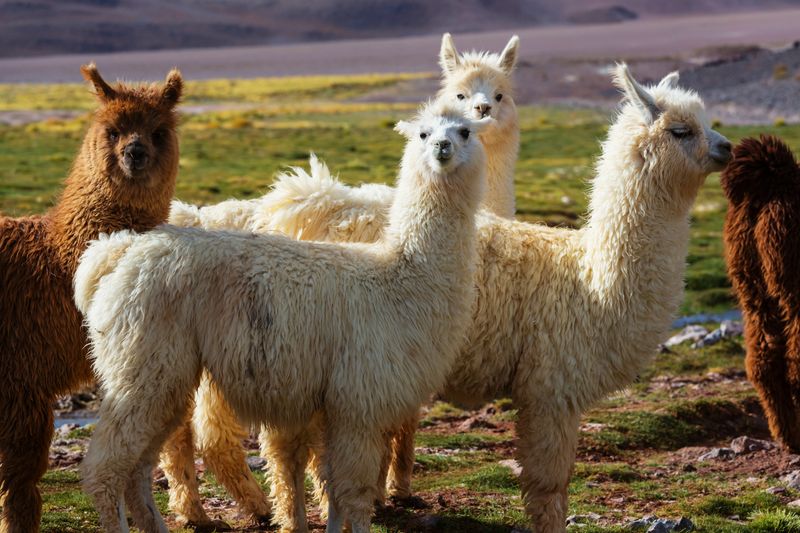
Llamas are often seen as low-maintenance due to their hardy nature, but they require specific care. They need regular shearing and grooming to prevent matting and overheating. Their diet needs to be supplemented with minerals to prevent deficiencies. Llamas require a secure enclosure and companionship, as they are social animals. They are prone to health issues like parasites, so regular veterinary care is essential. Llamas can be protective, making them suitable as guard animals, but this means they need proper training and handling. They also require clean and dry shelter to stay healthy.
Geese
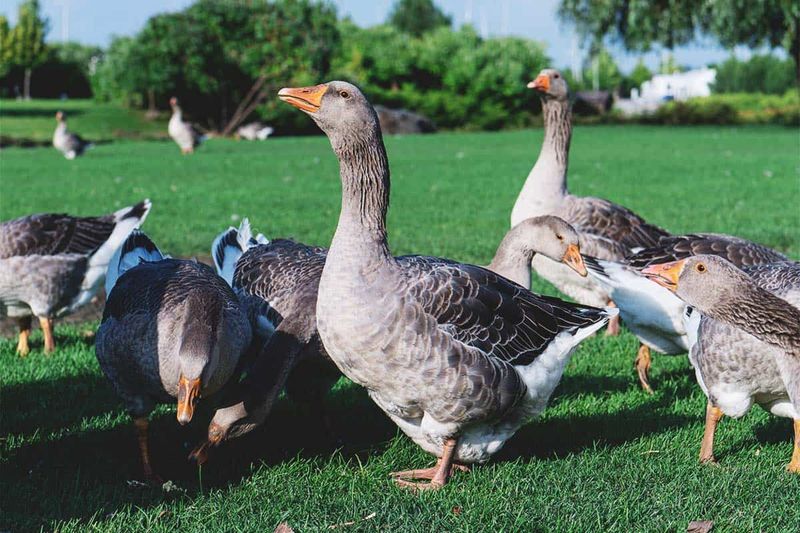
Geese are often perceived as easy to manage, but they come with challenges. They require large areas to graze and roam, as well as access to water for swimming and hygiene. Geese are social creatures, needing the company of other geese to thrive. Their strong territorial instincts mean they can be aggressive, requiring careful management. Geese also need a balanced diet, especially during breeding seasons. Housing must be secure against predators and provide adequate protection from the elements. Their loud honking can be disruptive, so consider the noise factor. Regular health checks prevent illnesses.
Alpacas
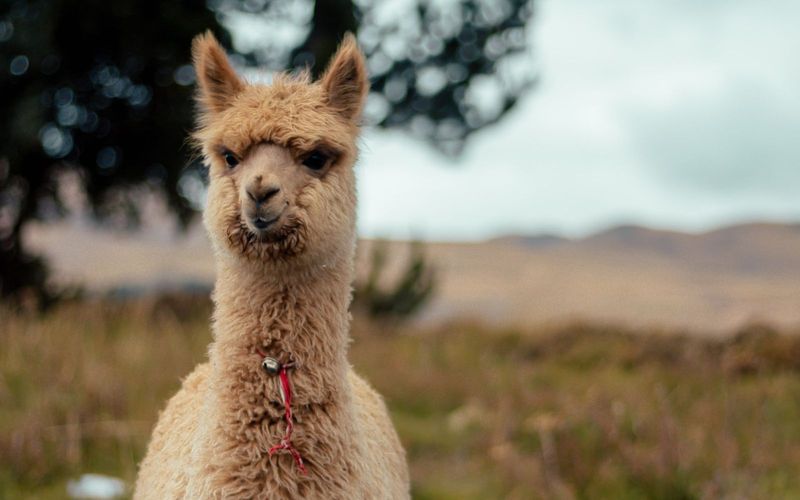
Alpacas are charming but need more care than expected. They require regular shearing to maintain their fleece and prevent overheating. Their diet should be rich in fiber and minerals to support their health. Alpacas need spacious and secure enclosures, as they are social animals that thrive in groups. They are prone to health issues like parasites, needing regular veterinary care and monitoring. Alpacas also require clean shelters and proper hygiene to prevent diseases. Their gentle nature makes them appealing, but they need patient handling and regular social interactions to stay content.
Donkeys
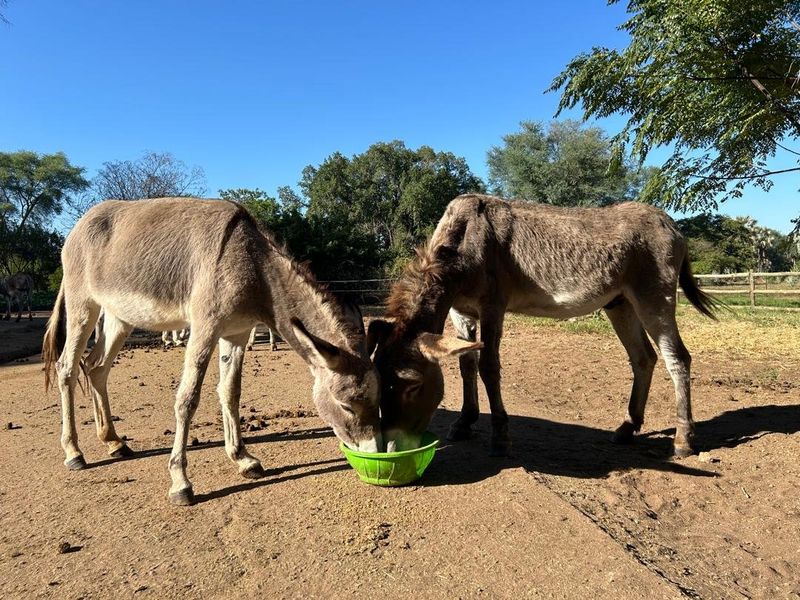
Donkeys are endearing but need particular care to thrive. They require a balanced diet with limited grain to prevent obesity. Donkeys need spacious pastures for grazing and exercise. Their hooves require regular trimming, and they are prone to dental issues needing routine checks. Donkeys are social animals, needing companionship to avoid loneliness. They also need protection from the rain and cold, requiring proper shelter. Donkeys can be stubborn, which demands patient and consistent handling. Regular health monitoring is essential to prevent issues like laminitis. Despite their reputation, donkeys are quite intelligent and curious.
Bees
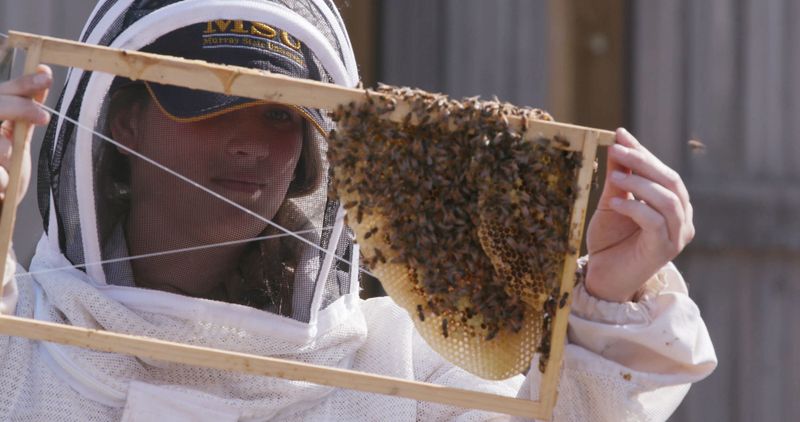
Beekeeping is rewarding but requires more effort than assumed. Bees need well-maintained hives for optimal health and productivity. The hive must be inspected regularly for diseases like varroa mites. Beekeepers need to ensure bees have access to diverse floral sources for nutrition. Managing the hive’s temperature and ventilation is crucial, especially in extreme weather. Protective gear is necessary to handle bees safely. Honey extraction demands special equipment and knowledge. Swarm management is another task requiring attention. Bees need clean water sources nearby. Despite their small size, they add significant work to a farm.
Rabbits
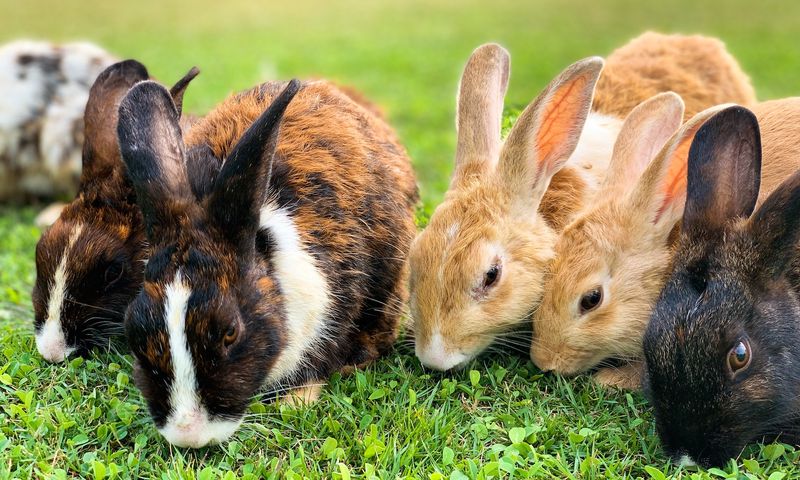
Rabbits are adorable but require specific care. They need spacious enclosures with secure fencing to prevent escapes and protect them from predators. Rabbits have sensitive digestive systems, requiring a diet rich in hay and fiber, with fresh vegetables as a supplement. Regular grooming helps prevent matting and hairballs, especially for long-haired breeds. Rabbits are social animals, needing companionship and interaction to prevent loneliness. Their living area needs regular cleaning to maintain hygiene and health. They are prone to dental issues, necessitating regular veterinary checks. Rabbits require gentle handling to prevent stress and injury.
Peafowl
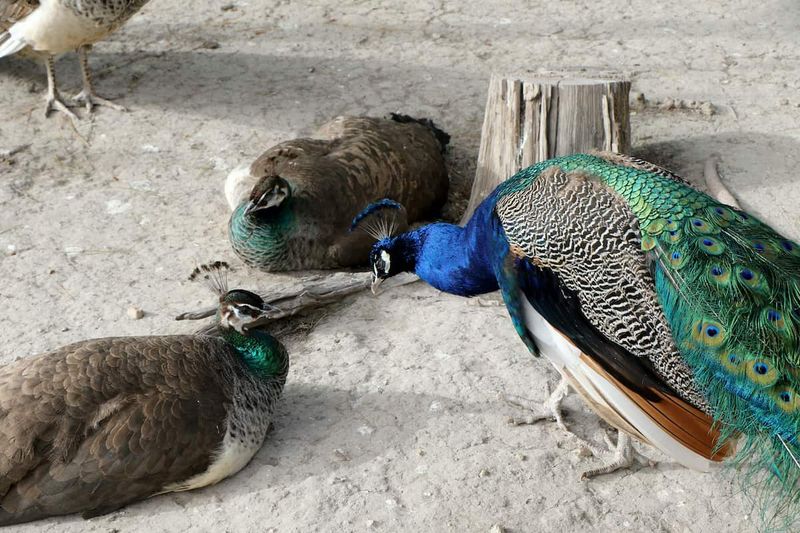
Peafowl are stunning but not as easy to care for as they appear. They require large enclosures with plenty of space to roam and display their feathers. Peafowl need a diet rich in protein and greens to maintain their health and vibrant plumage. Secure housing is crucial to protect them from predators and harsh weather. Peafowl are social birds, needing interaction with other peafowl to thrive. Their loud calls can be disruptive, requiring consideration for noise levels. Regular health checks can prevent diseases common in avian species. Peafowl need regular grooming to maintain feather quality.
Guinea Fowl
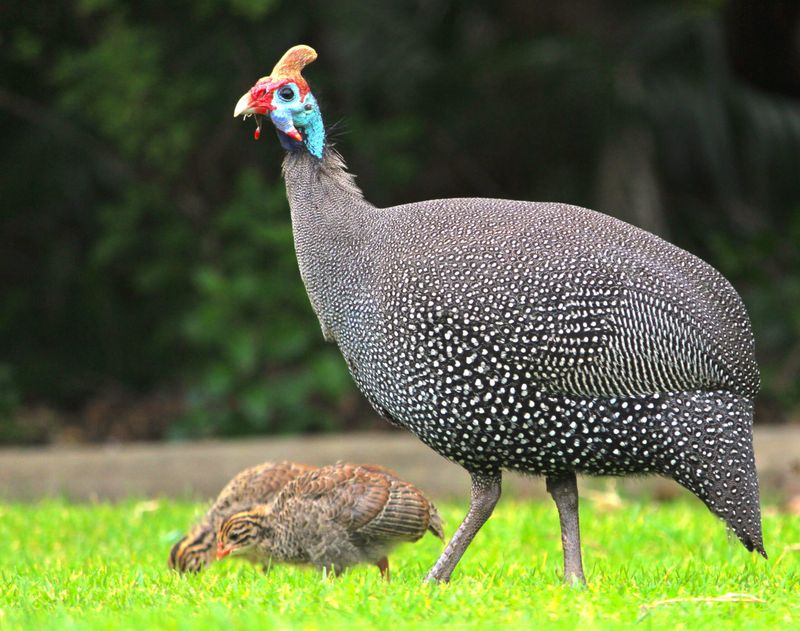
Guinea fowl are excellent for pest control but require specific care. They need large areas to roam and forage naturally. Their diet should include seeds, insects, and greens for balanced nutrition. Housing must be secure, as they are prone to wandering and vulnerable to predators. Guinea fowl are social, needing the company of their kind to prevent distress. Their loud calls serve as an alarm but can be disruptive. Regular health checks are necessary to monitor for illnesses like Newcastle disease. Their strong flight ability requires wing clipping to prevent escape.
Emus
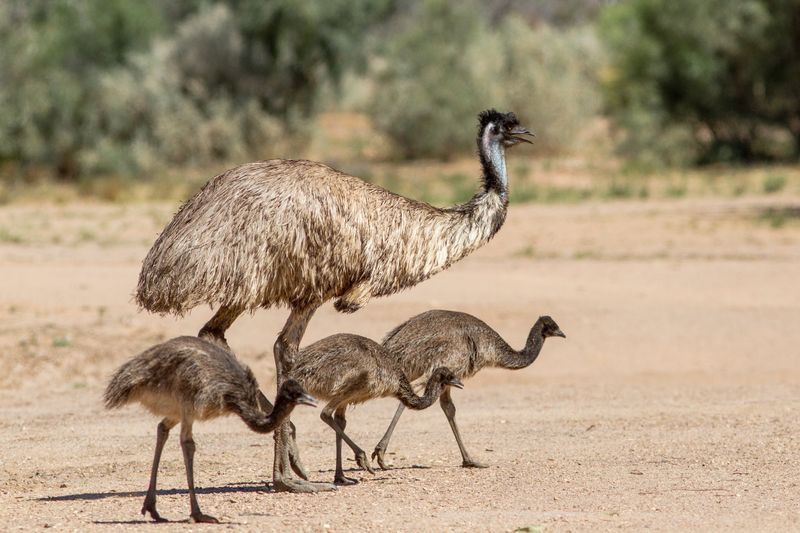
Emus are fascinating but demand more than expected. They require vast enclosures to roam and express natural behaviors. Emus need a balanced diet of grains, greens, and protein-rich feed to support their growth and health. Secure fencing is essential to prevent escapes and protect them from predators. Emus are social, thriving in groups, so companionship is vital. Handling them demands skill and care, as they can be unpredictable. Regular health monitoring is crucial, especially during breeding seasons. Their strong legs and large size make proper space and management a priority.
Quail
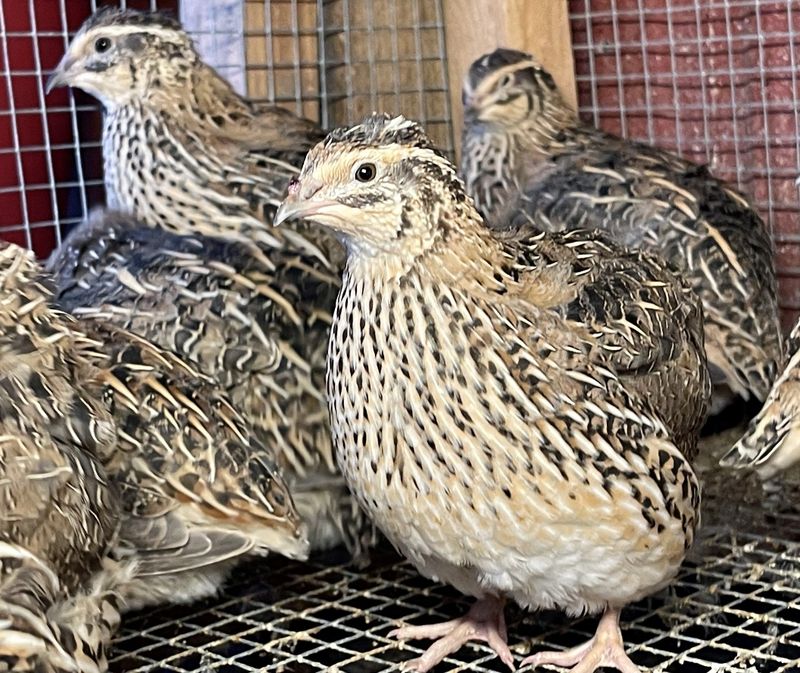
Quail are appealing for their size and eggs but require attentive care. They need secure enclosures to protect them from predators and ensure their well-being. Quail require a diet rich in protein and calcium to support egg production and health. Regular cleaning of their living area is necessary to prevent diseases. They thrive in groups, needing social interaction to prevent stress. Quail are sensitive to environmental changes, needing stable conditions for optimal health. Monitoring their health is crucial, as they can be prone to avian diseases. Careful management ensures their productivity and happiness.
Ostriches
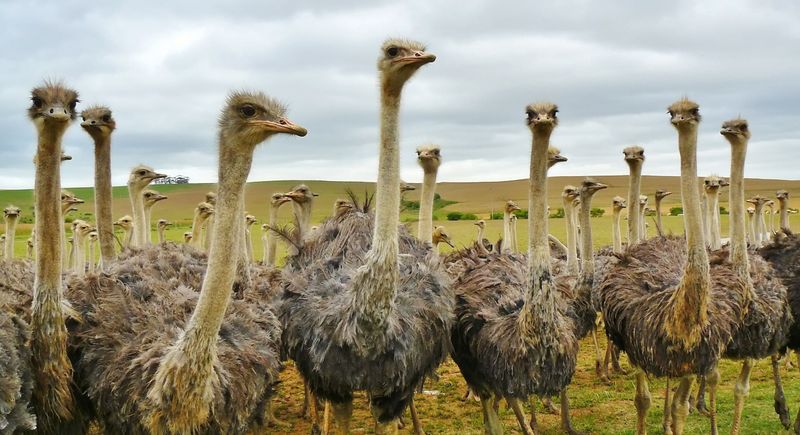
Ostriches are intriguing but have specific needs. They require large enclosures to roam and exercise, essential for their health. Their diet should be balanced with greens, grains, and protein to support their size and energy. Secure fencing is crucial to contain them, as they are strong and swift runners. Ostriches thrive in groups, needing social dynamics to avoid stress. They require regular health checks to prevent common diseases. Handling and breeding ostriches demand expertise and patience. Their powerful legs and inquisitive nature call for careful management. Despite their hardiness, they require substantial resources.
Camels
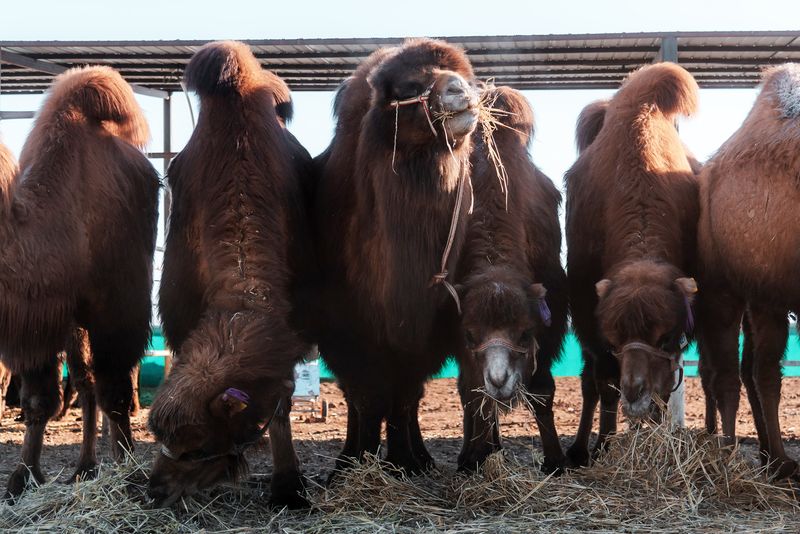
Camels are known for resilience, yet they demand specific care. They require large, dry enclosures mimicking their natural desert habitat. Camels need a diet of dry grasses and grains, supplemented with minerals to maintain health. They require regular veterinary checks to monitor for parasites and illnesses. Camels thrive in groups, needing social interaction to remain content. Their unique physiology demands proper hydration and management. Handling camels requires knowledge and patience, as they can be strong and stubborn. Their living conditions must be clean and dry to prevent infections and diseases.
Yaks
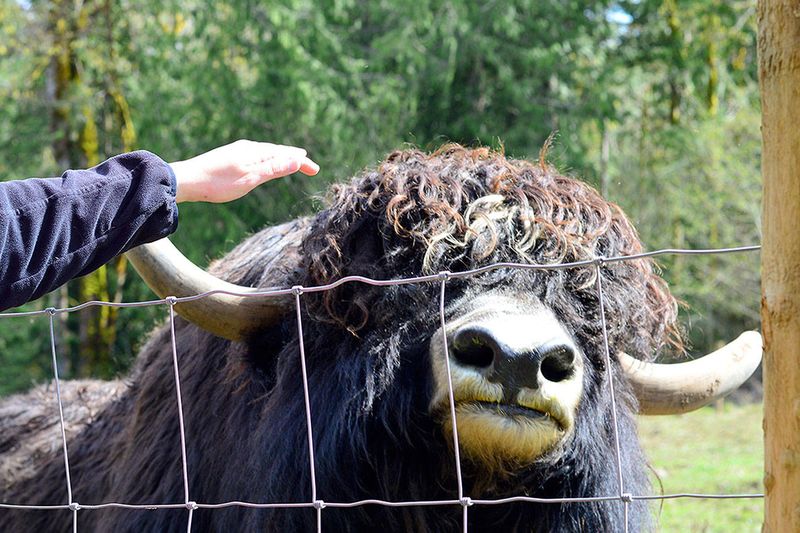
Yaks are suited for cold climates but need particular care. They require large pastures for grazing, with a diet rich in grass and grains to support their energy needs. Yaks need regular grooming to maintain their dense coats, preventing matting and overheating. Secure fencing is essential to prevent them from wandering. Yaks are social animals, thriving in herds, so companionship is vital. Their living conditions must be dry and clean to prevent diseases. Handling yaks demands patience due to their strength and size. Regular health checks ensure they remain healthy and productive.
Reindeer
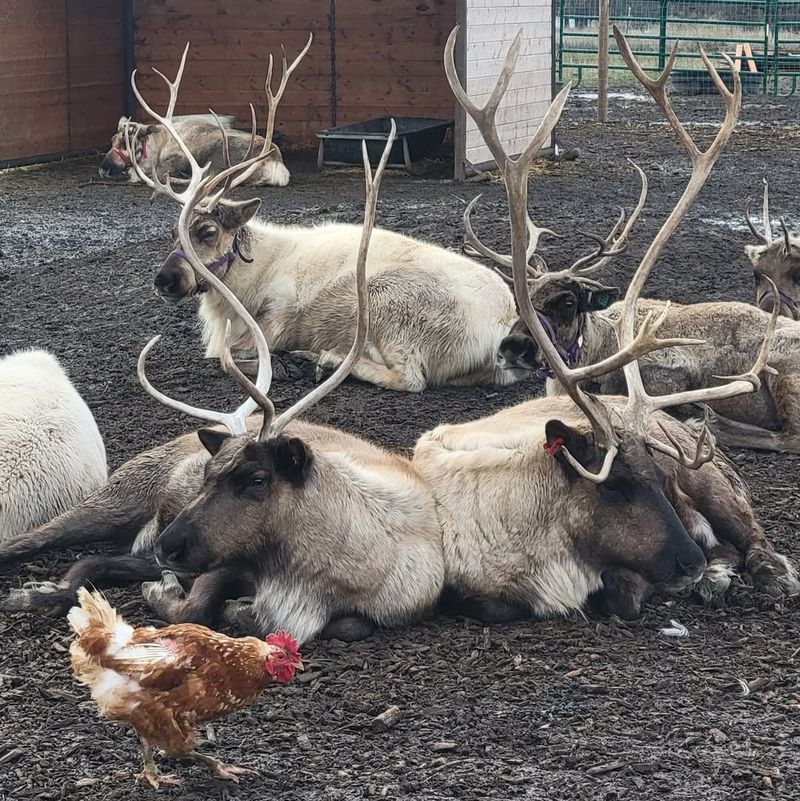
Reindeer are magical but require specific care. They need large, cold enclosures that mimic their natural tundra environment. Reindeer require a diet rich in lichen, grass, and grains to maintain their health. Their antlers need regular inspection for signs of injury. Reindeer are social, needing the company of others to thrive. They require secure fencing to prevent escapes and protect them from predators. Handling reindeer demands expertise, as they can be sensitive to stress. Their health must be monitored regularly to prevent diseases common in cold climates. Despite their hardiness, they need attentive care.
Water Buffalo
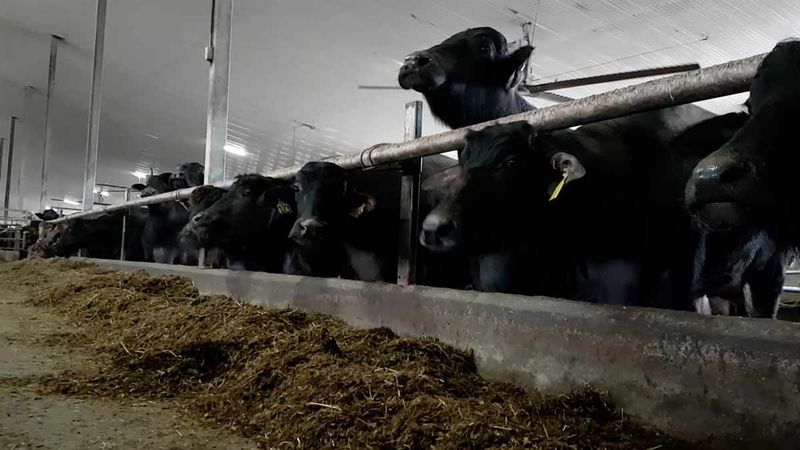
Water buffalo are versatile but require considerable care. They need access to water bodies for wallowing, essential for their skin health and cooling. Their diet should be rich in grasses and grains to support their energy needs. Secure fencing is crucial to manage their strength and prevent escapes. Water buffalo thrive in groups, needing social interaction to remain content. Regular health checks are necessary to monitor for diseases and parasites. Handling them demands skill and patience due to their size and strength. Despite their robustness, they require proper care and management.
Silkies
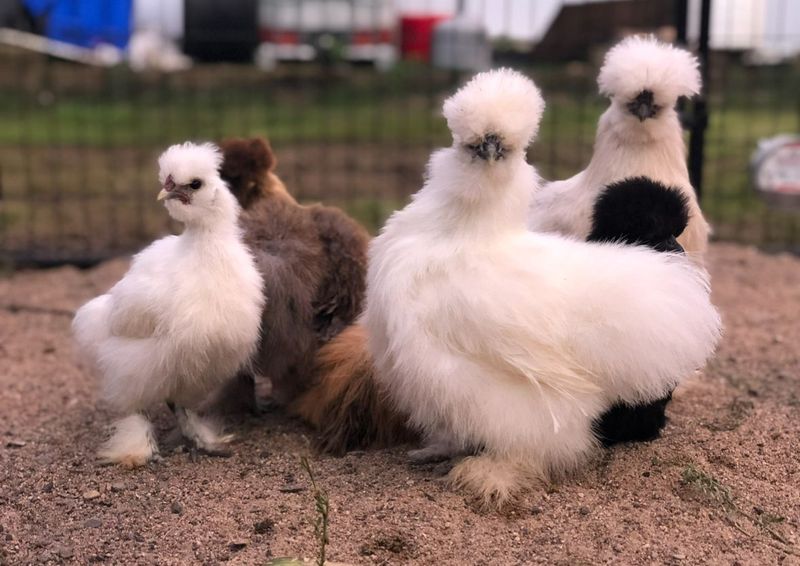
Silkies are charming little chickens renowned for their fluffy plumage that resembles fur rather than feathers. These bantams require special care due to their fragile nature.
Their unique feathers don’t repel water, so they must be kept dry and warm, especially in wet climates. Special attention is needed to ensure their living environment is clean and dry to prevent health issues.
Moreover, Silkies are prone to infestations by mites, demanding regular health checks and preventive treatments. Despite their delicate constitution, their gentle nature makes them endearing pets for those willing to put in the effort.

